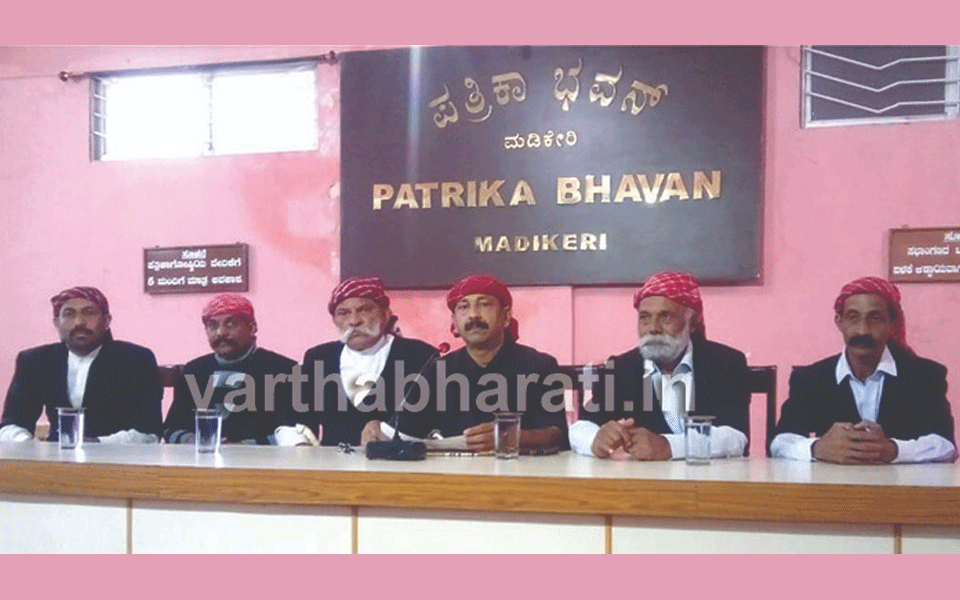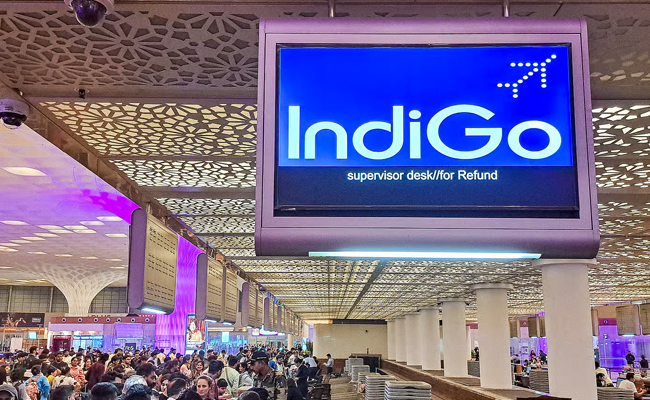Madikeri, June 29: Codava National Council president N U Nachappa urged the government to name Kushalnagar which reminds Tipu Sultan who was responsible for Devatparambu carnage, after Frazer Town or soldier Kulletira Ponnanna.
Speaking to reporters here on Friday after submitting a memorandum to the deputy commissioner, he said that when Tipu was born, his father Hyder Ali who camped with his army at Dandinapete on the bank of Cauvery, had called the region as Kushalnagar. The Persian word ‘Kush’ means, celebration. So as the Kushalnagar would remind Tipu Sultan, the government should rename the place as Frazer Town or Kulletira Ponnanna, he demanded.
The place was named after JS Frazer who ended the ruling of dynasty to uphold the self respect of Codava tribals and passed an Act banning the cow slaughter in 1835 for the first time in the country. But when the Mysuru state was merged with Karnataka in 1956, Frazer Pete was renamed as Kushalnagar. If the government was not ready to rename Kushalnagar after the British officer, it could think of naming it after Codava army commander Kulletira Ponnanna who chased the army of Hyder Ali and Tipu Sultan who were attacking Kodagu, he demanded.
Welcoming the renaming of Aurangzeb and Akbar roads in New Delhi after Dr Abdul Kalam road and Maharana Pratap road respectively by the Narendra Modi government, he said that the government should change the names which remind the misdeeds of Tipu Sultan, he said.
The memorandum was sent to President Ramnath Kovind, Prime Minister Narendra Modi and others. If the name was not changed, the Council would continue its peaceful protest, he said.
Kaliyanda Prakash, Mukonda Dilip, Mandapanda Manoj, Kiriyada Sharein, Chambanda Janath and Areyada Girish were present while submitting the memorandum.

Let the Truth be known. If you read VB and like VB, please be a VB Supporter and Help us deliver the Truth to one and all.
Bengaluru (PTI): The Karnataka government has issued directions to municipal corporations across the state to regulate and prohibit feeding pigeons in public places, citing serious public health concerns.
Deputy Secretary to Government V Lakshmikanth has written to the Urban Development Department requesting it to issue directions to the Greater Bengaluru Authority (GBA) and all municipal corporations to take immediate steps to implement the measures.
In an official note dated December 16 issued by the Health and Family Welfare Department and released to the media on Wednesday, the department said uncontrolled feeding of pigeons in public places has resulted in large congregations of birds, excessive droppings and serious health concerns, particularly respiratory illnesses linked to prolonged exposure to pigeon droppings and feathers such as hypersensitivity pneumonitis and other lung diseases.
ALSO READ: Chinese GPS tracker found on seagull near Karwar Coast
"The commissioner, the Greater Bengaluru Authority and the Commissioners and chief officers of other municipal corporations shall take necessary action to mitigate the causes of dangerous disease spread by pigeon and enforce specified guidelines in their respective jurisdiction," the note said.
According to the department, these include a prohibition on feeding pigeons or causing pigeons to be fed in areas where it may cause nuisance or pose a health hazard to the public. Pigeon feeding shall be permitted only in designated areas in a controlled manner, subject to certain conditions.
"The designated areas may be selected in consultation with stakeholders. The responsibility for upkeep of the designated areas and compliance to the directions shall be taken up by some charitable organisation or an NGO. The feeding in designated areas shall be permitted only for some limited hours in the day," it said.
The note further stated that authorised officers of local authorities shall issue on-the-spot warnings and may impose fines for violation of the order, or lodge complaints to prosecute offenders under Sections 271 (Negligent act likely to spread infection of disease dangerous to life) and 272 (Malignant act likely to spread infection of disease dangerous to life) of the Bharatiya Nyaya Sanhita.
It also directed local authorities to conduct public awareness campaigns, including the display of signboards, banners and digital messages, explaining the health hazards associated with pigeon droppings and feathers, the content of the regulatory directions and penalties for violations, and alternative humane methods of bird conservation that do not endanger public health.





